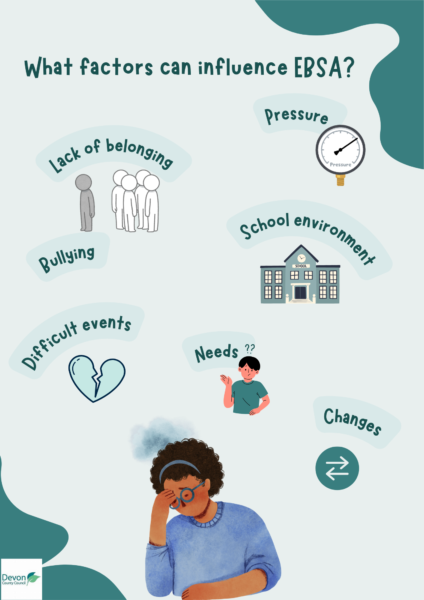There are a range of factors that can influence EBSA, including individual, school and family factors.
These include:
- anxiety
- bullying
- discrimination and harassment
- not feeling safe
- friendship difficulties
- academic demands
- transition to secondary school, key stage or change of school
- school environment
- special educational needs and/or disabilities
- neurodivergence
- change in family dynamic (for example separation or divorce)
- loss and bereavement
- experience of traumatic events

For many children experiencing EBSA, school non-attendance serves a function. The four key reasons as identified in research are:
- avoiding difficult feelings that come about from attending school such as anxiety
- avoiding difficult or stressful situations at school. This may include social pressures, aspects of the school environment and academic demands
- reducing separation anxiety and/or receiving attention from parents, carers and other family members
- gaining rewards, fun and stimulation outside of school such as playing computer games or spending time with friends.